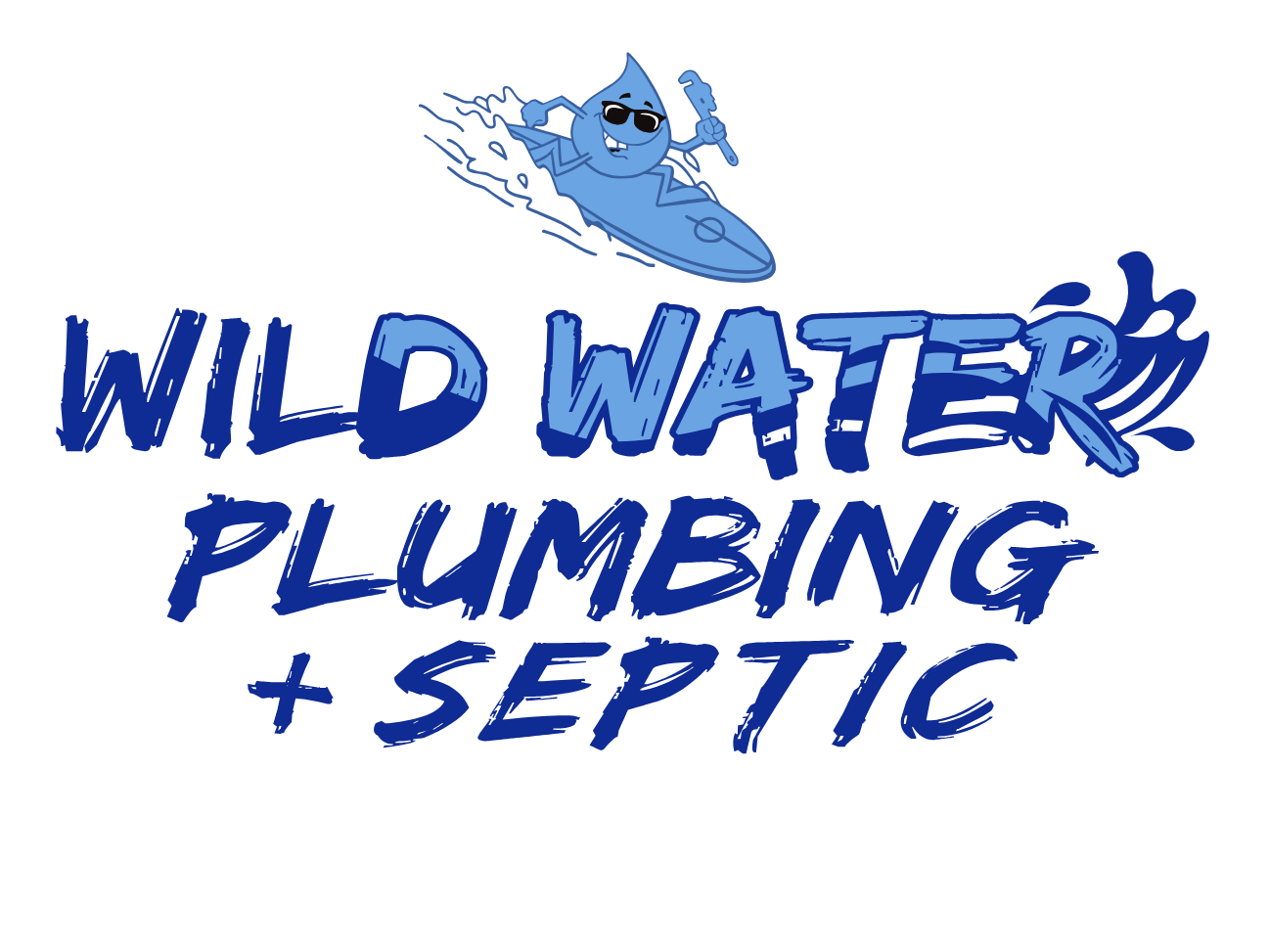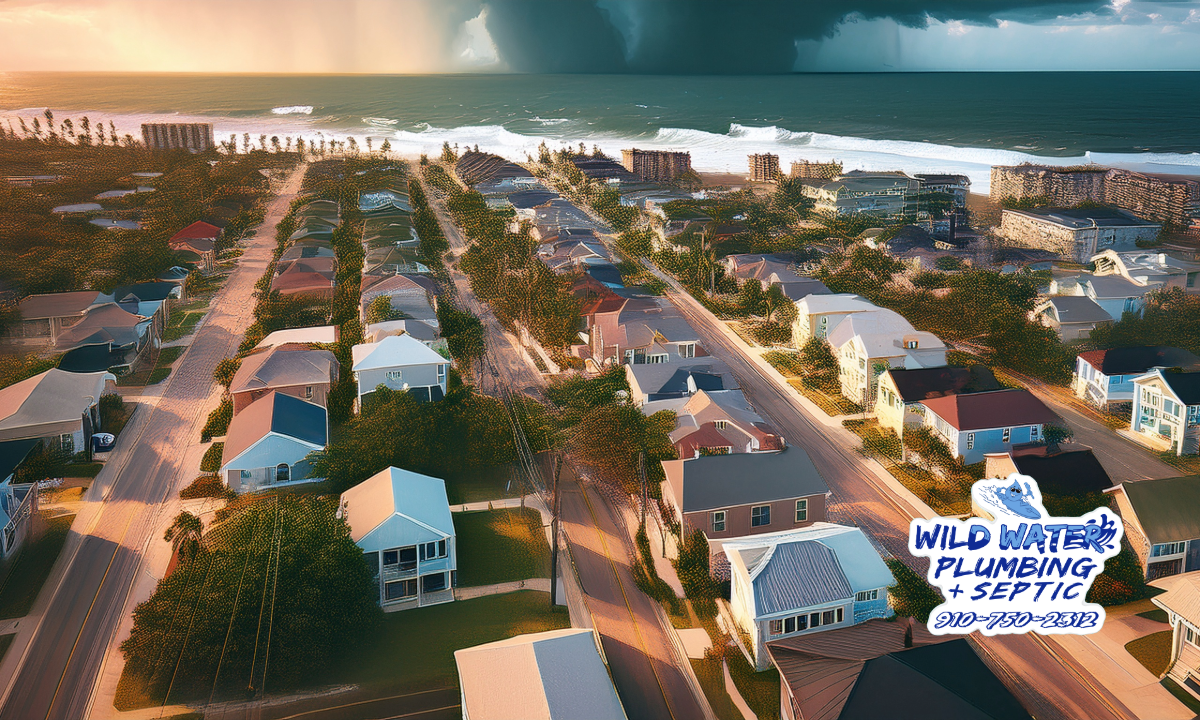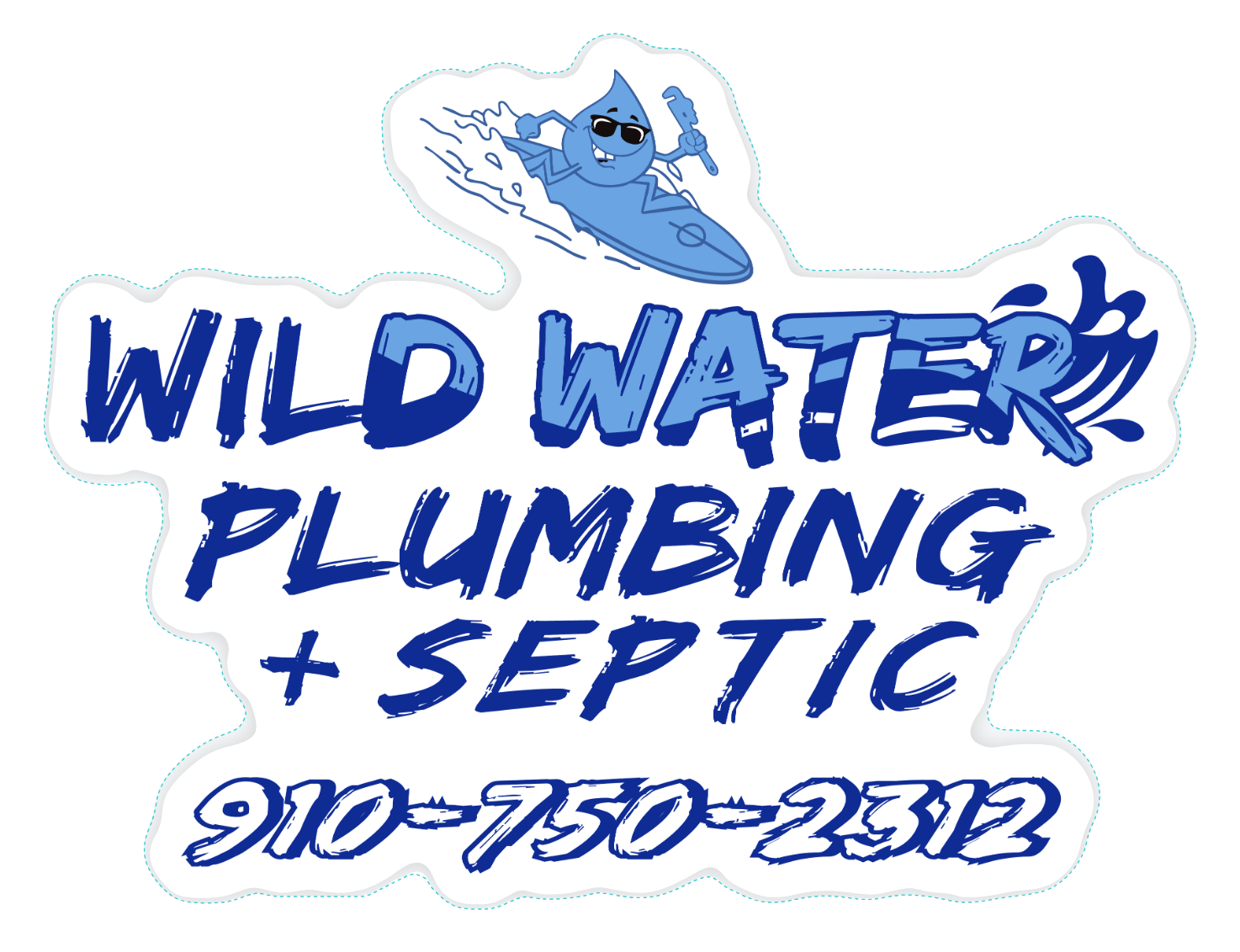By Justin Wilder, Owner of Wild Water Plumbing | Septic Systems
Surf City Is One of the Hardest Places in North Carolina for Septic Systems to Survive
I work on coastal septic systems across Pender and Onslow County, and I can say without hesitation: Surf City is one of the most challenging environments for a drain field to stay healthy.
From the homes near the Intracoastal Waterway to the beachfront houses that face the Atlantic, Surf City septic systems are constantly battling:
- shifting sand
- dune erosion
- overwash events
- storm tides
- rising groundwater
- saltwater intrusion
- extreme rainfall
It’s the perfect storm for early drain field failure.
Even systems that were built properly, installed correctly, and pumped on schedule can fail years earlier than expected simply because of the environment they sit in.
If you live in Surf City or own a rental home here, understanding these factors can save you thousands of dollars and help protect your home from future septic disasters.
Shifting Sand Is Quietly Destroying Surf City Drain Fields
Surf City isn’t like inland towns where soil stays in place.
Here, the sand is constantly moving.
Every storm, every tide cycle, and every Nor’easter shifts the landscape even if it’s just an inch at a time.
How shifting sand damages septic systems
Shifting sand can:
- expose septic lines
- bury drain fields too deep
- collapse trenches
- tilt distribution boxes
- disconnect lateral lines
- compress the soil above the field
A drain field needs stable soil to function.
When sand moves, the whole system moves with it, and that movement is what causes premature failure.
Where this happens most often
- homes along the oceanfront
- properties near the dunes off North Shore Drive
- houses close to overwash zones
- older beachfront cottages
If your home sits anywhere near active dune systems, your drain field is at risk of shifting right along with them.
Storm Tides Saturate the Ground and Stop the Drain Field From Working
Storm tides are one of the most damaging forces to septic systems in Surf City.
These tides force saltwater into the ground, pushing it up from below and saturating the soil around your drain field.
When the soil becomes saturated
Your drain field becomes useless.
Wastewater has nowhere to go. Instead of draining into the soil:
- it backs up into the tank
- pushes odors into the yard
- causes slow-draining toilets
- creates bubbling and gurgling noises
- leads to sewage appearing near the surface
Storm tides do not need to cause visible flooding to ruin a septic system.
Even a slight rise in groundwater can cripple a drain field for days or weeks.
Coastal Erosion Shortens the Lifespan of Every Septic System in Surf City
Surf City’s shoreline moves more than most homeowners realize.
When coastal erosion pushes the dune line back, properties lose the natural protection that keeps their septic systems safe.
Without dunes buffering the yard, stormwater hits harder, drains more slowly, and saturates deeper.
Erosion does three major things to septic systems
- exposes the septic components to the elements
- reduces the distance between the system and saltwater
- increases the risk of overwash flooding
A septic system that should last 25 years may only last 10–12 years in these conditions—sometimes even less if it’s an older installation.
Overwash Events Bring Saltwater Directly Into the Drain Field
Every time Surf City experiences an overwash event, whether from a tropical system, Nor’easter, or even a strong moon tide, the drain field gets bathed in saltwater.
Saltwater destroys drain fields by:
- killing beneficial bacteria
- compacting the soil
- clogging the sand layer
- corroding pipes and fittings
- destroying filter fabric
- stopping wastewater absorption
Saltwater intrusion is one of the leading causes of sudden septic failure in Surf City beachfront homes.
Why Surf City Drain Fields Fail Faster Than Inland Systems
If you’ve ever wondered why septic systems fail so quickly in Surf City compared to Hampstead or Rocky Point, here’s why:
1. The water table is naturally high
Even in dry conditions, it sits close to the drain field.
2. The soil drains too quickly or not at all
Sand drains fast—but saturated sand drains slowly.
3. Storms change the ground structure
Soil shifts, pipes move, trenches collapse.
4. Saltwater intrusion kills system biology
Without bacteria, the tank fills with solids faster.
5. Rental homes overload the system
Surf City rental properties often host more guests than the system was built for.
How Surf City Homeowners Can Protect Their Septic Drain Fields
Even though the coastal environment is challenging, there’s a lot you can do to protect your system.
Upgrade to a coastal-rated drain field (EZflow systems)
These handle shifting sand and saturated soil better than gravel systems.
Raise the drain field
Keeping it above the water table dramatically improves long-term performance.
Add an effluent filter
This prevents solids from clogging the drain field during heavy use.
Improve yard drainage
Redirecting stormwater keeps your field from saturating too quickly.
Schedule seasonal inspections
Especially before and after hurricane season.
Limit water usage after storms or king tides
Give your drain field time to recover.
Use septic-safe cleaning products
This protects the bacteria that keep your system healthy.
Surf City Is Tough on Septic Systems: But With the Right Protection, Yours Can Last
You can’t stop the sand from shifting or the tides from rising—but you can protect your septic system from the damage they cause.
I’m Justin Wilder, owner of Wild Water Plumbing.
If your Surf City home is experiencing slow drains, odors, wet spots, or sudden septic problems, I’m here to help.
Call Wild Water Plumbing today. I’ll inspect your system, identify coastal damage, and ensure your drain field withstands Surf City’s toughest conditions.
Stay safe and prepared, Jacksonville.
– Justin Wilder, Owner
📞 Call or text me directly at (910) 750-2312 to schedule your storm check today.
Wild Water Plumbing—Local, Veteran-Owned, and Always Ready.
—


